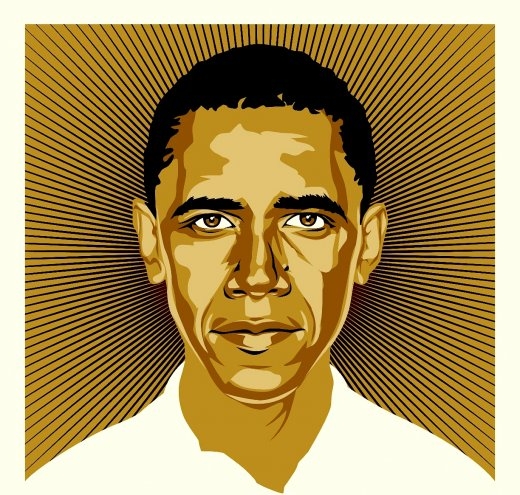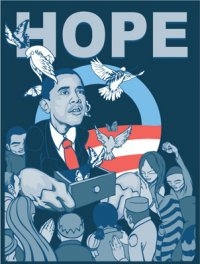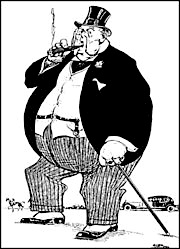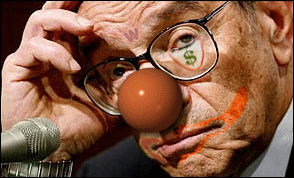
MSNBC: After Barack Obama’s first six weeks as president, the American public’s attitudes about the two political parties couldn’t be more different, the latest NBC News/Wall Street Journal poll finds. Despite the country’s struggling economy and vocal opposition to some of his policies, President Obama’s favorability rating is at an all-time high. Two-thirds feel hopeful about his leadership and six in 10 approve of the job he’s doing in the White House. “What is amazing here is how much political capital Obama has spent in the first six weeks,” said Democratic pollster Peter D. Hart, who conducted this survey with Republican pollster Bill McInturff. “And against that, he stands at the end of this six weeks with as much or more capital in the bank.” By comparison, the Republican Party — which resisted Obama’s recently passed stimulus plan and has criticized the spending in his budget — finds its favorability at an all-time low. It also receives most of the blame for the current partisanship in Washington and trails the Democrats by nearly 30 percentage points on the question of which party could best lead the nation out of recession. MORE
 WALL STREET JOURNAL: President Barack Obama enjoys widespread backing from a frightened American public for his ambitious, front-loaded agenda, a new poll indicates. He is more popular than ever, Americans are hopeful about his leadership, and opposition Republicans are getting drubbed in public opinion, the new Wall Street Journal/NBC News poll suggests. But there are also early warning signs showing risks if his plans don’t show progress. The president’s support, while still deep, looks increasingly partisan as Republicans move away from him. Americans have more confidence in the president himself than in some of his initiatives, such as the economic stimulus package, and have some hesitation about his plans to raise taxes to expand health coverage. The poll found a sharp jump in the proportion of Americans who say the nation is “generally headed in the right direction” since Mr. Obama’s January inauguration, a period when economic indicators and financial markets have suggested the opposite. The survey shows that 41% of Americans say the country is headed in the right direction, up dramatically from 26% in mid-January, before Mr. Obama took office, and up from 12% before the election. MORE
WALL STREET JOURNAL: President Barack Obama enjoys widespread backing from a frightened American public for his ambitious, front-loaded agenda, a new poll indicates. He is more popular than ever, Americans are hopeful about his leadership, and opposition Republicans are getting drubbed in public opinion, the new Wall Street Journal/NBC News poll suggests. But there are also early warning signs showing risks if his plans don’t show progress. The president’s support, while still deep, looks increasingly partisan as Republicans move away from him. Americans have more confidence in the president himself than in some of his initiatives, such as the economic stimulus package, and have some hesitation about his plans to raise taxes to expand health coverage. The poll found a sharp jump in the proportion of Americans who say the nation is “generally headed in the right direction” since Mr. Obama’s January inauguration, a period when economic indicators and financial markets have suggested the opposite. The survey shows that 41% of Americans say the country is headed in the right direction, up dramatically from 26% in mid-January, before Mr. Obama took office, and up from 12% before the election. MORE
CBS NEWS: Four months after John McCain’s sweeping defeat, senior Republicans are coming to grips with the  fact that the party is still – in stock market terms – looking for the bottom. Republicans this week are processing two sobering new polls that found the party’s support reduced to a slim one-quarter of Americans. In the absence of a popular elected leader, its most visible figure is a polarizing radio host. Its strategic powerhouse is a still-divisive former House speaker forced from power 15 years ago. And its hopes of demonstrating swift and visible change by pushing people of color to the fore have been dented by the stumbles of the party’s two most prominent non-white leaders, national Chairman Michael Steele and Louisiana Gov. Bobby Jindal. So perhaps it’s no surprise that many prominent Republicans are forecasting a long winter. MORE
fact that the party is still – in stock market terms – looking for the bottom. Republicans this week are processing two sobering new polls that found the party’s support reduced to a slim one-quarter of Americans. In the absence of a popular elected leader, its most visible figure is a polarizing radio host. Its strategic powerhouse is a still-divisive former House speaker forced from power 15 years ago. And its hopes of demonstrating swift and visible change by pushing people of color to the fore have been dented by the stumbles of the party’s two most prominent non-white leaders, national Chairman Michael Steele and Louisiana Gov. Bobby Jindal. So perhaps it’s no surprise that many prominent Republicans are forecasting a long winter. MORE
 BASELINE SCENARIO: Emerging market crises are marked by an increase in tunneling – i.e., borderline legal/illegal smuggling of value out of businesses. As time horizons become shorter, employees have less incentive to protect shareholder value and are more inclined to help out friends or prepare a soft exit for themselves. Boris Fyodorov, the late Russian Minister of Finance who struggled for many years against corruption and the abuse of authority, could be blunt. Confusion helps the powerful, he argued. When there are complicated government bailout schemes, multiple exchange rates, or high inflation, it is very hard to keep track of market prices and to protect the value of firms. The result, if taken to an extreme, is looting: the collapse of banks, industrial firms, and other entities because the insiders take the money (or other valuables) and run. This is the prospect now faced by the United States. MORE
BASELINE SCENARIO: Emerging market crises are marked by an increase in tunneling – i.e., borderline legal/illegal smuggling of value out of businesses. As time horizons become shorter, employees have less incentive to protect shareholder value and are more inclined to help out friends or prepare a soft exit for themselves. Boris Fyodorov, the late Russian Minister of Finance who struggled for many years against corruption and the abuse of authority, could be blunt. Confusion helps the powerful, he argued. When there are complicated government bailout schemes, multiple exchange rates, or high inflation, it is very hard to keep track of market prices and to protect the value of firms. The result, if taken to an extreme, is looting: the collapse of banks, industrial firms, and other entities because the insiders take the money (or other valuables) and run. This is the prospect now faced by the United States. MORE
FIRST PRINCIPLES: Indeed we should do something—but, as usual, it’s exactly the opposite of what the federal government intends to do. We should cut the government’s budget as drastically as possible, thereby releasing resources for use by the productive sector. (That worked pretty well in stopping the terrible depression of 1920–21.) We should stop the Fed from interfering in the recovery process. We should let the private economy sort out which activities undertaken during the artificial Greenspan boom are genuine wealth-generating activities and which are wealth-destroying bubble activities. The latter should be promptly liquidated so their resources can be better employed by the former.
government intends to do. We should cut the government’s budget as drastically as possible, thereby releasing resources for use by the productive sector. (That worked pretty well in stopping the terrible depression of 1920–21.) We should stop the Fed from interfering in the recovery process. We should let the private economy sort out which activities undertaken during the artificial Greenspan boom are genuine wealth-generating activities and which are wealth-destroying bubble activities. The latter should be promptly liquidated so their resources can be better employed by the former.
Meanwhile, we still have some conservatives, frozen in the 1980s, calling for reductions in marginal income tax rates, among other feckless suggestions. Tax reductions are desirable, to be sure, but the crisis we are facing is a systemic one that is not going to be fixed by marginal changes here and there. We need to start talking big changes. We need to open up questions the regime has long since considered closed. We need to talk about the monetary system, the Fed, entitlements, and much else. MORE
 BLOOMBERG NEWS: Alan Greenspan wasn’t wrong when he talked about irrational exuberance in the U.S. stock market, just early. About 12 years too early. As the CHART OF THE DAY shows, the Standard & Poor’s 500 Index has lost as much as 6 percent since Dec. 5, 1996, when he used the phrase in a speech to the American Enterprise Institute for Public Policy Research. The index, which closed that day at 744.38, fell below 700 in yesterday’s trading. “How do we know when irrational exuberance has unduly escalated asset values, which then become subject to unexpected and prolonged contractions?” said Greenspan, then the Federal Reserve’s chairman. “And how do we factor that assessment into monetary policy?” MORE
BLOOMBERG NEWS: Alan Greenspan wasn’t wrong when he talked about irrational exuberance in the U.S. stock market, just early. About 12 years too early. As the CHART OF THE DAY shows, the Standard & Poor’s 500 Index has lost as much as 6 percent since Dec. 5, 1996, when he used the phrase in a speech to the American Enterprise Institute for Public Policy Research. The index, which closed that day at 744.38, fell below 700 in yesterday’s trading. “How do we know when irrational exuberance has unduly escalated asset values, which then become subject to unexpected and prolonged contractions?” said Greenspan, then the Federal Reserve’s chairman. “And how do we factor that assessment into monetary policy?” MORE
